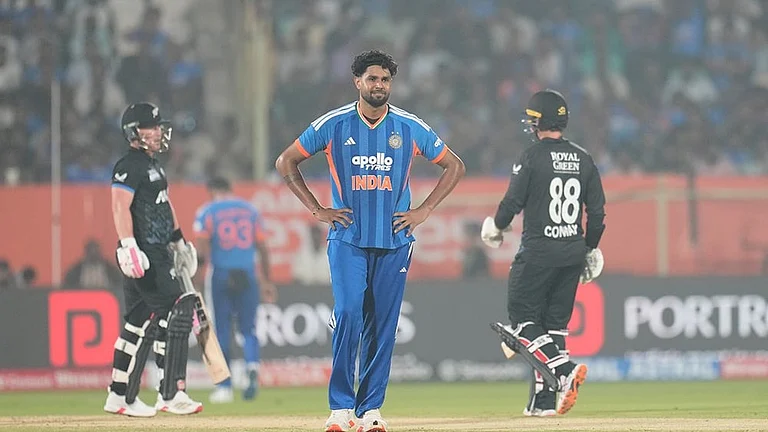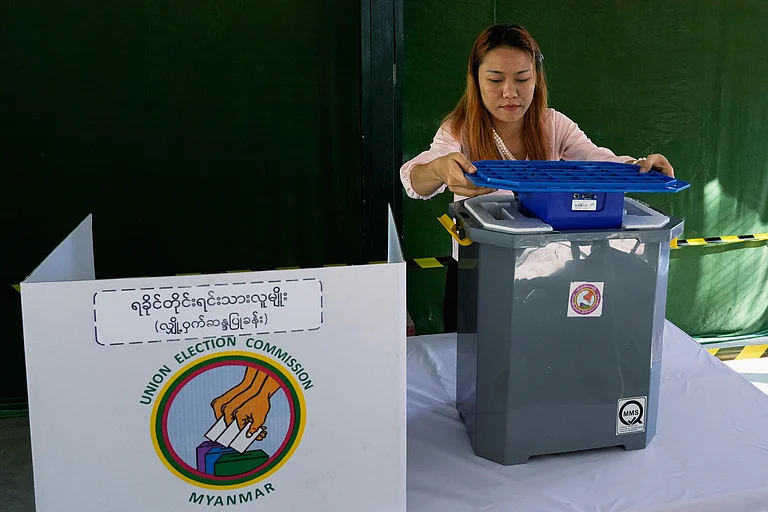Myanmar's struggle for democracy reached a breaking point on February 1, 2021, when the military junta, led by General Min Aung Hlaing, staged a coup, and arrested elected members of the National League for Democracy (NLD). The crackdown came just before the MPs could be sworn into Parliament, including Nobel Peace Prize laureate and former icon of democracy Aung San Suu Kyi, who had led the NLD to a resounding victory in the 2020 elections. The junta alleged widespread election fraud - despite no credible evidence - and used this claim to back its actions.
This military takeover marked a catastrophic pause to Myanmar’s experiment with democracy, pushing the country back into a cycle of authoritarianism, ethnic violence, and humanitarian crises. While ethnic armed conflicts have plagued Myanmar since its independence, this latest coup ignited a broader crisis that entwined ethnic strife with the larger battle for democratic governance.
Myanmar’s potential for resolution remains uncertain due to its complex history and diverse ethnic landscape, says Chetan Rana, a doctoral candidate at the Centre for International Politics, Organization and Disarmament (CIPOD) of Jawaharlal Nehru University (JNU). "Like many post-colonial states, Myanmar has struggled to unify its regions, many of which enjoyed relative autonomy under British rule. Ethnic and linguistic diversity further complicates matters, with the Burmese military, or Sit Tat, maintaining its grip on power by exploiting the state's ontological insecurity. Over the decades, multiple conflicts have coexisted, with Ethnic Armed Organizations (EAOs) fighting both the military and each other for control," he told Outlook.
Tatmadaw VS Ethnic Groups: A History of Violence
Myanmar’s civil war has its origins in the unresolved conflicts between the military, known as the Tatmadaw, and various ethnic armed groups (EAOs), which now control roughly 60 per cent of the country's territory. These groups have been fighting for self-determination since the country’s independence from British rule in 1948. The 2021 coup, however, brought new dimensions to this civil war, as EAOs that had previously focused on autonomy now found themselves part of a larger struggle against a common enemy—the military junta, whose days are said to be "numbered" now.
“Even during the democratic interregnum under Aung San Suu Kyi, efforts to include all EAOs enjoyed limited success,” says Rana. “Despite this history of struggle, there is hope for the future. The organic rise of the Civil Disobedience Movement after the coup demonstrates that democracy is a deeply held value among the people.”
The National Unity Government (NUG), composed of former NLD leaders, and the People's Defence Force (PDF) have since spearheaded resistance against the junta, which considers NUG a terrorist group. While the Tatmadaw continues to control key cities, the opposition forces have limited the military’s control to about a third of the country. However, ethnic divisions and infighting among EAOs remain a challenge.
Aung San Suu Kyi: A Complicated Legacy
Once hailed as a global icon of resistance to military rule, Aung San Suu Kyi’s legacy has been tarnished by her handling of the Rohingya crisis, where she defended the military’s actions against the ethnic minority. This has contributed to a muted international response to Myanmar’s current crisis, according to Chetan Rana, Associate Editor at the geopolitical consulting portal 9Dashline.
The Rohingya genocide is a series of ongoing persecutions and killings of the Rohingya people, a persecuted Muslim community of Rakhine state, by the Myanmar military, including a military crackdown in 2017. Millions of Rohingyas now live in harrowing conditions in refugee camps of Bangladesh's Cox's Bazar, and some have taken refuge in India as well.
“Her defence of the military’s actions significantly tarnished her image, particularly among progressive circles and in the West,” Rana explains. “This has contributed to a more subdued international response to Myanmar’s ongoing crisis. Once the symbol of global solidarity, her international standing has undoubtedly been damaged," he said.
However, domestically, Suu Kyi remains a figure of hope. Even after her arrest in 2021, the military has refused to allow international envoys or diplomats to meet her, underscoring her continued influence as a symbol of Myanmar’s democratic aspirations. Protesters still rally with her image, and the NLD continues to be a political force through the NUG.
Factors like defections, territorial losses, failure to recruit more people, economic decline and popular uprising suggest that the junta might be losing momentum. However, there still is scope for more regional and international attention to the Myanmar atrocities, especially what Rohingyas have gone through.
India and China: Competing Interests in Myanmar’s Crisis
Myanmar has become a battleground for regional influence, with India and China both vying for strategic footholds. As Chetan Rana points out, “Myanmar is a strategic gateway for India into Southeast Asia and a crucial link for its northeastern states. Conversely, China sees Myanmar as essential for access to the Bay of Bengal and a key component of its Belt and Road Initiative.”
India’s response to the crisis has been one of cautious engagement. This stance that has raised questions about whether the country should review its policy over Myanmar amid the junta, as many believe, it appears to be in "terminal decline".
While New Delhi has issued statements supporting democracy, it has broadly accepted the depleting military junta's rule, backing ASEAN’s Five-Point Consensus and favouring a region-led approach to resolving the crisis. However, reports of arms supplies from India to the junta have damaged New Delhi’s standing among Myanmar’s resistance groups.
China, on the other hand, has played a more complex role. While it maintains relations with the military junta, China has also brokered ceasefires between EAOs and the Tatmadaw to protect its investments, such as the China-Myanmar Economic Corridor (CMEC). Yet, as Rana points out, "nationwide conflict and violence are not good for business," making China’s position in Myanmar increasingly unpredictable.
ASEAN, tasked with finding a way out, has singularly failed to deliver.
A Forgotten Crisis? Silence Of International Community
Despite the enormity of the crisis, the international community has remained largely passive. “The Myanmar crisis represents a textbook case for international intervention,” says Rana. “Yet the UN, particularly the Security Council, has been disappointingly passive.”
Amid the global geopolitical chessboard, Myanmar risks becoming a forgotten crisis, as Chetan Rana believes, "The broader international inaction reflects the partisan nature of the global order."
While the world looks elsewhere, Myanmar’s civil war grinds on, and its people are left to fend for themselves.


























